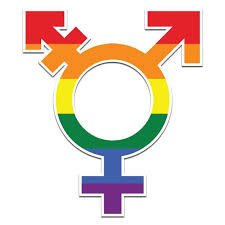LGBTQIA Equal Opportunity Employment

Each June marks Pride Month, a time intended to celebrate the LGBT community and bring attention to LGBT rights and struggles. One of those struggles is discrimination and equal employment opportunity. Many popular cases in the news relate to employers refusing service to customers, but identity-based bias is also an issue in hiring and workplace discrimination and harassment.
Title VII, signed by President Lyndon B. Johnson in 1964, prohibits discrimination based on race, color, religion, national origin, and sex. Although these are important identities to protect, there are many more that need to be taken into consideration in employment law. The Elliot-Larsen Civil Rights Act of 1976, Michigan’s equivalent to Title VII, also includes age, height, weight, and marital status as protected identities. Additionally, the even more progressive Workforce Innovation and Opportunity Act, updated in 2016, protects people “based on disability, pregnancy, national origin and limited English proficiency, gender identity, and other factors” (U.S. Department of Labor). It is illegal for employers to discriminate against employees based on these outlined personal identity traits.
U.S. Equal Employment Opportunity Commission Chair Janet Dhillon puts it best when she states that “everyone… [deserves] to be treated fairly at work, no matter who they are – as long as ‘who they are’ is a qualified worker who can do the job right” (Equal Employment Opportunity Commission). Dhillon cites the historical example of Walt Whitman, the famous poet who was dropped from his publisher because of his sexuality. The public pressured the publishing company that employed Whitman to censor future editions of his published work, which would effectively erase his identity in his work. Whitman ultimately found another publisher and continued his career as a prolific poet.
Whitman lived in a time before Title VII and other equal employment opportunity laws. Yet, he persisted in his work and wrote a great many influential poems. Today, we live in a time where there are more protections surrounding aspects of personal identity. However, there are no federal laws that explicitly outline sexual identity as a protected status. Some courts have interpreted Title VII’s protection against discrimination based on gender to include sexual identity or orientation, but other courts considering the same issue has held otherwise. The United States Congress has long considered enacting specific legislation to offer protection from employment discrimination to employees based on sexual orientation and/or identity, but such federal legislation has yet to be passed.
If you have questions about sexuality as a protected status in your area or any other employment law issue, call Gold Star Law today.


